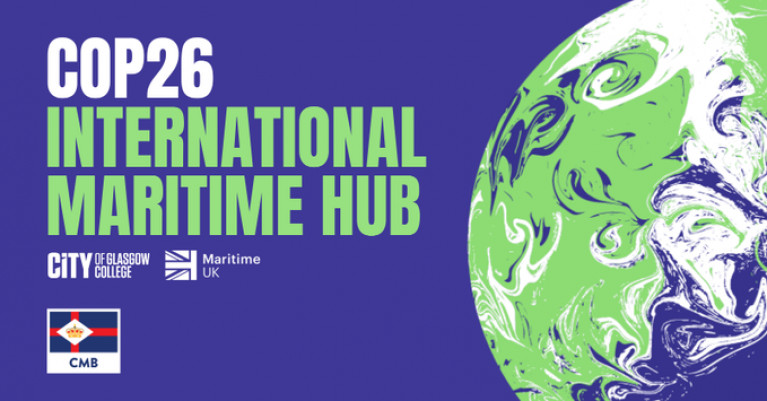Displaying items by tag: Maritime UK
Maritime UK Appoints New Chair and Vice Chair
The umbrella organisation for the UK’s maritime sector, Martime UK has appointed Robin Mortimer as its new chair and Tom Boardley as vice chair.
Robin was nominated by the British Ports Association and UK Major Ports Group whilst Tom was nominated by the UK Chamber of Shipping.
Currently CEO at the Port of London Authority, Robin was previously vice chair and replaced Sarah Kenny who served as Chair from 2021.
Robin started his term on 1 January 2023 and will be working with members to help steer the sector through the next two years, with its response to climate change top of the agenda. Maritime UK will be working closely with the government on its refresh to the Clean Maritime Plan, due to be published in 2023.
Maritime UK’s current priorities are the environment, people, regional growth, competitiveness and innovation and works to bring coherence to the sector’s asks of government on these shared priorities as well as delivering programmes and initiatives to help move the dial within each area. Programmes include the Diversity in Maritime programme, careers and outreach programme and Regional Cluster Development programme.
Commenting on his appointment, Robin said:“I am honoured to be taking the Chair of Maritime UK and to be given the opportunity to serve the UK's maritime industries at such a crucial time.
“There is now a much greater appreciation and understanding of the maritime sector within the UK, and how we can support major national missions like, decarbonisation, levelling up and becoming a research and development powerhouse.
“Our task over the next two years is to embed that progress, deliver a robust and tangible Clean Maritime Plan, increase the impact of Maritime UK’s programmes in critical areas like people and bang the drum for UK PLC across the world. All of this whilst responding to challenging headwinds caused by underlying economic conditions and geopolitics.
“I am convinced that by working closer and closer together our sector will thrive, and I look forward to working with the member community to accelerate our progress toward Maritime 2050.”
Maritime UK is the umbrella body for the maritime sector, bringing together the shipping, ports, services, engineering and leisure marine industries. Its purpose is to champion and enable a thriving maritime sector. Maritime UK has responsibility for the coordination and delivery of industry recommendations within Maritime 2050.
Its members are Belfast Maritime Consortium, British Marine, British Ports Association, CLIA UK & Ireland, Connected Places Catapult, Institute of Chartered Shipbrokers, Maritime London, Maritime UK South West, Mersey Maritime, Nautilus International, Port Skills and Safety, Shipping Innovation, Society of Maritime Industries, Solent LEP, The Baltic Exchange, The Seafarers' Charity, The Workboat Association, Trinity House, UK Chamber of Shipping and the UK Major Ports Group.
Maritime UK Announces Events at COP26 to Showcase Sector’s Green Leadership to the World
Maritime UK has announced a COP26 programme, in partnership with the City of Glasgow College, to showcase the country’s global leadership in the shipping industry’s transition to Net Zero.
- IMO Secretary-General, Ministers and a VVIP to speak at flagship reception attended by maritime leaders
- Clean Maritime Demonstration Competition (CMDC) winners’ event set to demonstrate UK green maritime innovation
- Maritime Skills Commission will also chart skills needed to drive net zero transition
- Cutting-edge companies to showcase new clean vessels for offshore market
The programme will be delivered at “The International Maritime Hub”, located at the City of Glasgow College’s Riverside campus.
Winners of the government’s recent Clean Maritime Competition Demonstration (CMDC), which saw £23 million awarded to projects developing technology for vessels, will be provided a platform to demonstrate their innovation.
The Maritime Skills Commission will also host a forum for industry leaders to discuss how the UK’s sector will ensure the skills are in place to support the transition to net zero.
A reception will also be held with the IMO Secretary-General, Ministers and maritime CEOs in attendance. The invite-only event will be attended by Maritime UK members, IMO representatives and local Scottish maritime businesses.
Sarah Kenny OBE, chair of Maritime UK, said: “Our programme for COP26 will bring the sector together to showcase best practice and accelerate progress towards the decarbonisation of the sector.
“Through showcasing cutting-edge projects and convening the global industry to discuss this greatest of shared missions, we aim to set the agenda in Glasgow for green maritime.
“Following last week’s welcome Net Zero Strategy, we will also send a clear message to the UK government, highlighting how through closer collaboration, and further co-investment, we can meet the UK’s net zero target together.”
Other events over COP26 at the International Maritime Hub include the Mersey Maritime and Scottish Marine Cluster Breakfast Meeting, and ‘Get set for Workboat 2050’ hosted by the Workboat Association.
The Hub’s Platinum Sponsor is leading Belgian shipping firm Compagnie Maritime Belge, and Bronze Sponsors are Ecospeed Marine, the Port of Tyne and the American Bureau of Shipping (ABS).
Paul Little, Principal at City of Glasgow College, said: "As one of the leading maritime institutions across the globe, we are delighted to be working in partnership with Maritime UK to formally launch our International Maritime Hub here at our Riverside Campus in Glasgow.
“As this great city prepares to host COP26, when world leaders meet and agree on tackling climate change, we will be showcasing the latest technologies and innovation that the maritime sector has to offer."
Alexander Saverys, CEO at Compagnie Maritime Belge, added: “We are excited to be present at the International Maritime Hub during COP26. It’s an opportunity to showcase our many concrete hydrogen solutions for the shipping industry and engage with all the stakeholders on how to fast-track the deployment of green applications.”





























































